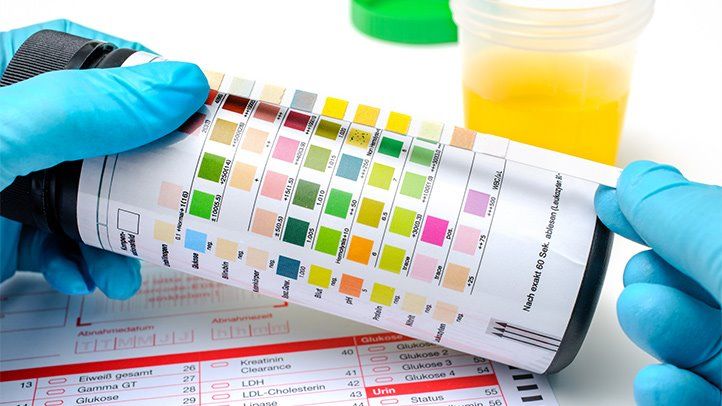Urinalysis is a common medical test that examines your urine to provide valuable insights into your overall health. Despite its simplicity, this test offers a wealth of information that can help identify various medical conditions. In this blog post, we’ll break down urinalysis in a way that’s easy to understand, so you can appreciate its importance and what to expect when you undergo one.
What is Urinalysis?
Urinalysis, as the name suggests, is the analysis of urine. This test helps healthcare providers assess your kidney function, detect potential health issues, and monitor certain medical conditions. It’s a non-invasive and straightforward procedure that involves collecting a urine sample and sending it to a laboratory for analysis.
Key Components of Urinalysis:
A typical urinalysis examines several aspects of your urine, including:
- Colour: The colour of your urine can reveal a lot about your hydration and potential health issues. Pale yellow or straw-coloured urine is usually a sign of good hydration, while dark yellow or amber-coloured urine might indicate dehydration or other concerns.
- Clarity: Normal urine should be clear. Cloudy or turbid urine can indicate the presence of substances like bacteria, blood cells, or crystals.
- Specific Gravity: Specific gravity measures the concentration of particles in your urine. It helps determine your hydration status. Low specific gravity indicates dilute urine, while high specific gravity suggests concentrated urine.
- pH Level: pH measures the acidity or alkalinity of your urine. Normal urine pH is slightly acidic, typically ranging from 5.5 to 7. Abnormal pH levels could indicate various health issues.
- Protein: The presence of protein in urine can be a sign of kidney disease or other health problems. Healthy kidneys usually filter out excess protein.
- Glucose: Glucose in urine may be an early sign of diabetes or other metabolic disorders. Healthy individuals typically have little to no glucose in their urine.
- Ketones: Ketones in urine can indicate that your body is using fat for energy. This may occur in certain conditions like uncontrolled diabetes or during extreme dieting.
- Blood: The presence of blood in urine can be due to a variety of causes, including urinary tract infections, kidney stones, or underlying medical conditions.
- Bilirubin and Urobilinogen: These are waste products from the breakdown of haemoglobin and can be indicators of liver or gallbladder issues.
- Nitrites and Leukocyte Esterase: These markers can suggest the presence of a urinary tract infection.
Why Is Urinalysis Important?
Urinalysis serves several crucial purposes:
- Detecting Health Issues: Urinalysis can identify a wide range of medical conditions, including kidney disease, diabetes, urinary tract infections, and liver problems.
- Monitoring Chronic Conditions: People with chronic diseases like diabetes or kidney disease often undergo urinalysis to monitor their health and treatment progress.
- Screening: In some cases, urinalysis is used as a screening tool, such as during pre-employment medical assessments.
So why consider running a Urinalysis test today ?
Urinalysis is a simple yet powerful diagnostic tool that offers essential insights into your health. By examining the colour, clarity, and chemical composition of your urine, healthcare providers can detect, monitor, and manage various medical conditions. If your healthcare provider recommends a urinalysis, don’t hesitate to go through with it. It’s a valuable step in maintaining your overall well-being and ensuring early detection of any potential health concerns.

